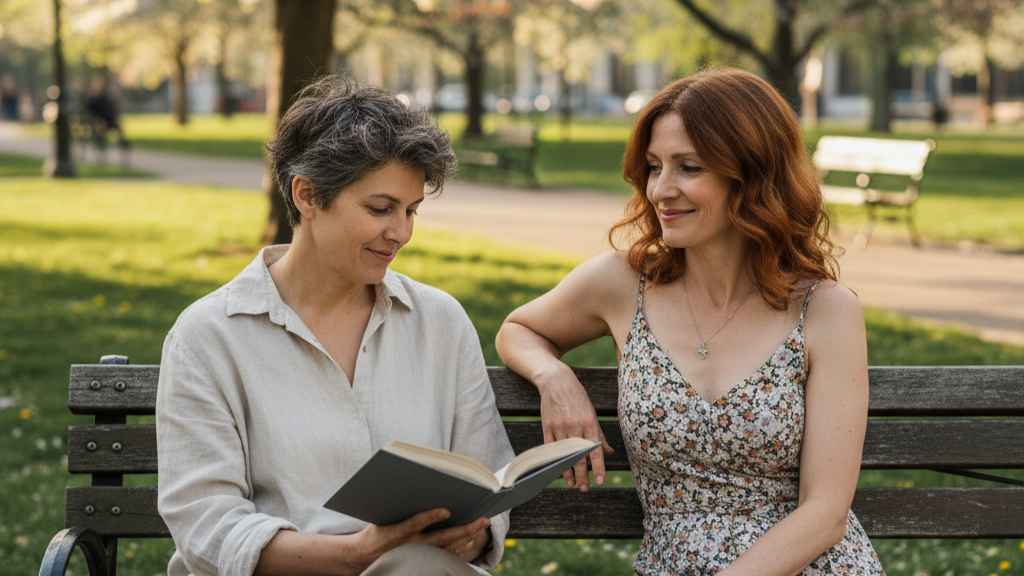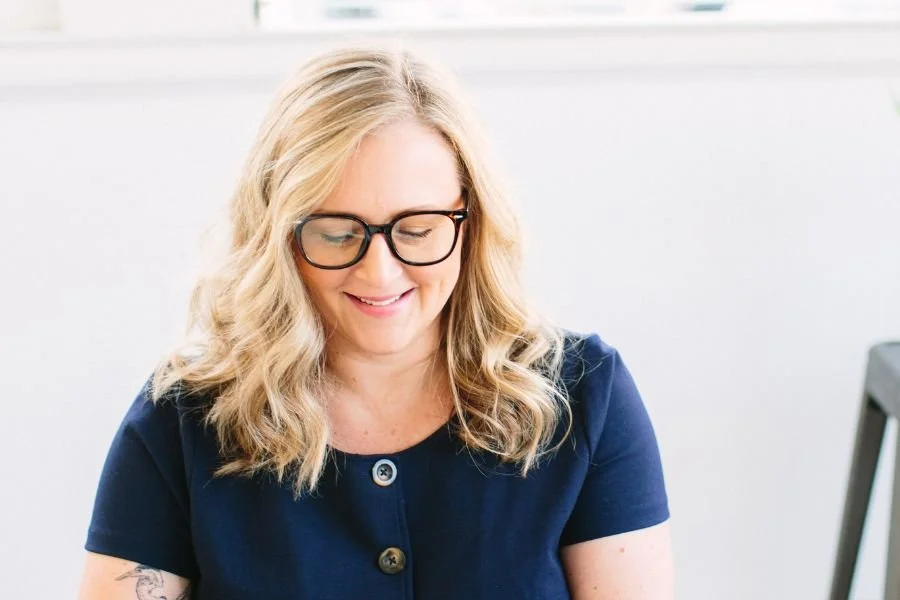Five Unconventional Ways to Deal with a New Diagnosis
Getting a new diagnosis brings a mixture of feelings. I was angry and sad at first. Then I got scared. I worried about my future and how my illness would change my life. I felt relief for finally getting an answer to what had been burdening me for so long. I felt guilty for the burden I thought I’d pose on others.
All these feelings were confusing. My struggle with grief and worry had me intolerably distracted. My clinging to the “why me?” question kept me paralyzed. My fight with guilt, embarrassment, envy, hopelessness, and despair thieved any scrap of vitality that Crohn's disease hadn’t already pocketed. My fortune-telling mind kept me so lodged in the future that I lost sight of what I could do now.
Here you are, managing all of your feelings AND the medical condition at the same time.
Your future is uncertain and a bit scary, but you can still take action now. I’ve assembled a short list of strategies to help you move forward in a productive and empowering way. By doing these things, you’ll understand your illness better, stop fighting with what you cannot change or understand, and begin building a foundation of courage, kind attention, and resilience.
Make Friends With Uncertainty
If you would have asked me when I was twenty-five years old, I knew with absolute certainty that I would never get a chronic incurable disease. In fact, I spent most of my time and energy chasing after certainty about where my life would go. I was intolerant to not-knowing so I tried to escape it any way I could.
Today, I feel much different. Today I feel a lot of uncertainty. As my last infusion approaches, I don’t know what my body will do without the medication. I don’t have an exact plan if my symptoms return. I don’t know how this illness will affect my life when I’m 50 or when I’m 80. Today, I open up to what is unfolding and make friends with uncertainty. In fact, uncertainty has a seat at my dinner table every night.
Chasing certainty will keep us preoccupied and we’ll never get any closer to a resolution. Chasing after certainty in an uncertain world keeps us immobilized. We make ourselves crazy, constantly whirling around in stories, trying to prepare for every worst-case scenario.
Our lives are greatly determined by what we do when we get uncertain. Do you perceive it as dangerous and try to avoid it? Or do you see it as a source of new opportunities?
Not knowing exactly what will happen next actually offers freedom. Try shifting from holding on to letting go. I invite you to simply be willing to be changed by illness and trust that you can handle it. When you live with a trusting mind, it will no longer keep you scrambling for something to hang on to. From this place you can tend and respond to the challenges that illness brings; you can give your best without an attachment to an outcome.
Become Curious
Get online, type in the name of your illness, and see where it takes you. Read from credible sources first like The American Diabetes Foundation, The Crohn’s and Colitis Foundation, The Parkinson’s Disease Foundation, The Mayo Clinic, or what pops up first on your web search.
Then move on to other resources where you learn from other patients about their experiences. Hold these stories lightly though. You will find incorrect information or exaggerated stories of both suffering and miraculous healing. But you might also find material that could help you understand your illness better.
If I relied solely on my doctors’ knowledge my health would suffer. Doctors are humans; they have limitations and huge caseloads of patients so we can’t rely on them to keep us healthy. With additional information from the internet, combined with a willingness to take the reins on your health, you will be able to offer your healthcare providers more comprehensive information which will result in better care.
Let the diverse stories of healing and misery remind you that everybody is different, and every body is different. You cannot compare your body or your illness to others, even if you have the same diagnosis or similar symptoms. The internet is a wonderful resource so rather than avoid it, I suggest you read it through the eyes of a curious scientist, open to the information but committed to making thoughtful decisions.
Get to the Root
In order to completely understand how to support your health and treat your illness, you have to get to the root of the problem. For many diseases, this isn’t clear. For many doctors, this isn’t the goal.
I recommend everyone establish care with a conventional medicine specialist (i.e. gastroenterologist, neurologist, rheumatologist, or endocrinologist, etc.) who focuses his or her work solely on your condition.
Then I recommend you access a naturopathic physician or functional medicine doctor so you can get to the root of what caused your illness. Naturopathy (as well as functional medicine and integrative medicine) are different from conventional medicine approaches in that their focus is on the whole body and treating the root cause of disease. This principle is what sets naturopathic medicine apart. All naturopathic therapies work in concert with this vital force to enhance and support the healing capacity. Naturopathic and functional medicine doctors simply facilitate this healing ability by removing obstacles to cure and giving the body what it needs.
Build Your Tribe
I haven’t met one person with health challenges who didn’t tell me that illness made them feel lonely and isolated. Not one person!
We deal every day with illness and pain, exerting energy and attention to manage it, coping with the disappointment when strategies don’t work, constantly adjusting to disruption, and navigating the seemingly endless losses, fears, and anxieties whirling around in our minds.
With all this preoccupation, we become distracted, detached, distanced, and cut off from the world. If that weren’t bad enough, we withdrawal even further in an effort to protect ourselves from all this discomfort.
The longer you stay in that process, the more difficult it will be to reintegrate yourself back into your relationships. Because by the time you reach out, your friends and family don’t know what you’re truly going through or how to connect with you. When you feel judged or your illness is questioned, it creates another kind of isolation – that of being misunderstood.
Reconnecting with loved ones and being a part of social activities, even if it’s infrequent, is an essential part of coping. When you make your pain experience more sharable you allow others to help you feel less isolated. Providing space for another person helps them understand what you are feeling.
Oh, and by the way… your tribe isn’t just family and friends. Your tribe can also be your health care providers, co-workers, your care partners, a support group, a therapist, or an online community.
Find Stillness
When you are still and paying attention you will find a quiet space outside of your head where you can deeply connect with yourself. Applying mindful attention to your most important values enables you to stay focused, be open to possibilities, and be skillful as you cope with health challenges.
Meditation is a very useful tool to facilitate this connection. Each day, I pause for a moment and close my eyes. I sit still, paying attention to my breath. Some days I do this for the length of three breaths. Other days I do it for an hour. It gives me a small oasis of quiet and allows me to hear my thoughts and catch my breath.
On a practical level, stillness has helped me to stop chasing after my before-Crohn’s life and engaging in behaviors that would keep me unhealthy. It has allowed me to find peace with the fact that I don’t have all the answers and I don't know what will happen next. It slows my world down so I can make healthful decisions.
When you are still, you are not problem-solving. You are not planning. You’ll let go of conversations about what’s possible and impossible. You’ll let sadness show up, if it wants to. You’ll just observe all of it, without changing anything.
As you practice this, you will be more willing to embark on this new path in your life and be open to possibilities. When you listen to your heart center, it will let you know you are okay and that you don’t have to have all the answers.
Exploring how these themes resonate in your own life? Therapy can be a place to unpack, find clarity, and move forward in a way that feels true to you. If you’re interested in seeing how we might work together, please review my specializations in the “About You” menu at the top of the page. I work with women in Seattle and across Washington State.



































